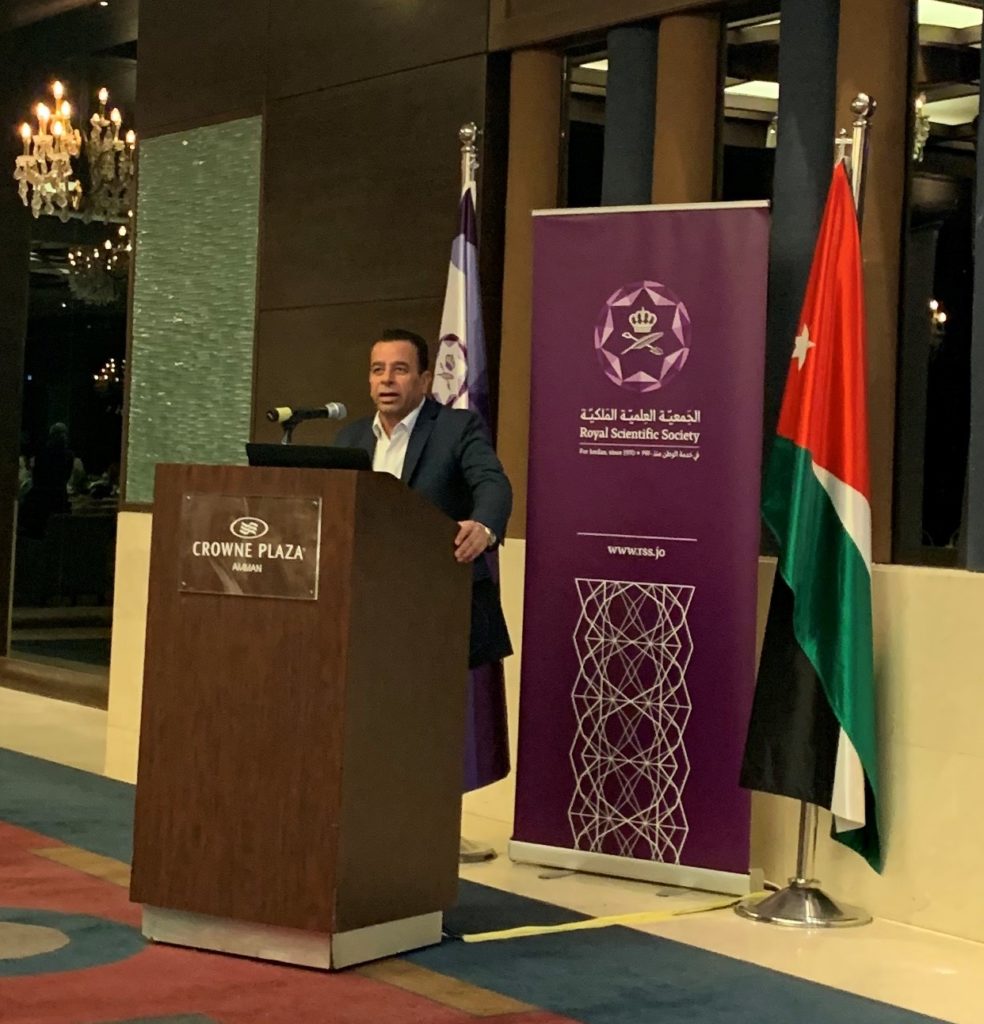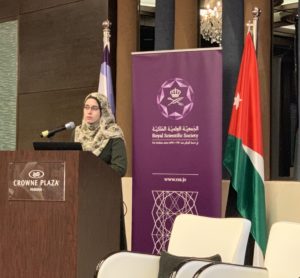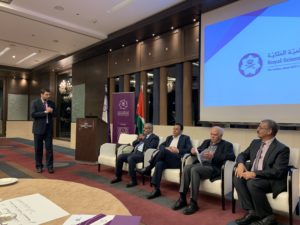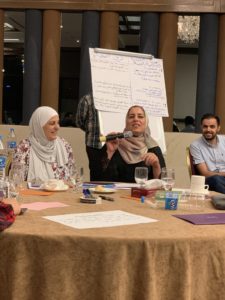First National Learning Alliance meeting emphasizes value of reusing water in Jordan

The ReWater MENA project held its first National Learning Alliance (NLA) meeting in Jordan on 17 July 2019. The aim of the meeting was to introduce the ReWater MENA project from a regional perspective to key stakeholders. Representatives from government, academia and non-governmental organizations participated. The program included an overview of the ReWater MENA project in the Middle East and North Africa by Dr. Gihan Bayoumi, Regional Project Manager. Implemented in Lebanon, Egypt and Jordan, the project tackles Goal 6 of the Sustainable Development Goals (SDGs). Dr. Bayoumi, stressed that water is a scarce resource and that sustainable strategies for safe reuse of water must be implemented.
The NLA meeting also aimed at introducing the current project activities in Jordan. A key focus of discussion was the issue of water scarcity, the non-conventional use of water sources, including the reuse of water as an important strategic choice for Jordan towards achieving water and food security within the constraints of climate change.
Eng. Ali Sobh, the Secretary General of the Ministry of Water and Irrigation, stressed that water recycling is one of the most important strategic choices facing Jordan which is ranked the second most water scarce country in the world. “The Syrian refugees are adding a dramatic population increase, and meeting the water demand has become even more critical. Water scarcity impacts every aspect of Jordanian life” he stated. The Jordanian government has set a clear national water strategy for 2016-2025, which includes the reuse of treated wastewater. The Government stipulates that all new wastewater treatment projects must include feasibility aspects for water reuse, and has set standards for treated domestic wastewater effluent (Jordanian Standards JS 893/2006). Eng. Sobh added that the Ministry of Water and Irrigation fully supports the ReWater MENA project and emphasized that the project’s scope and objectives are in line with the Jordanian government’s vision towards expanding the reuse of water.
Eng. Rafat Assi, the Royal Scientific Society (RSS) vice president for consultation and studies, clarified that RSS has signed a number of agreements with the Ministry of Water and Irrigation and with the Ministry of Environment to monitor the quality of effluents in numerous areas in Jordan. He added that the ReWater MENA project is supporting RSS in their focus on the development of applied research studies related to the pharmaceutical residuals from the recycled water used in Jordan valley.

According to RSS, the available renewable water source has reached approximately 100 cubic meters per capita per year, which is below the water scarcity limit. 52% of water sources in Jordan is used for agriculture purposes. Treated wastewater consists of 14% of the total water source in Jordan and is therefore considered a vital resource. “32 waste water treatment plants exist in Jordan and are operated by the Water Authority of Jordan (WAJ). The amount of treated waste water produced in Jordan reached 166 Million cubic meter in 2018” said Eng. Ayat Hazaymeh.
The RSS project team presented an overview of the current ReWater MENA activities in Jordan which consist of 2 main outputs: 1) the development of a national study about the long term effect of using the treated waste water on the Jordan Valley and 2) expansion the treated water reuse in two local sites.

The second part of the workshop consisted of a panel discussion for high level policy makers which was moderated by the RSS team leader, Dr. Al Moayied Assayed. The panel aimed at discussing the importance of using recycled water in Jordan.
Following the panel discussion, participants formed working groups to discuss topics such as the social, technical and economic challenges facing the expansion of water reuse, irrigation methods using treated water for agricultural purposes, governance, and the roles and responsibilities of various organizations.

The groups put forward important remarks concerning the water reuse in Jordan, which will be considered during the implementation of the ReWater MENA project.
